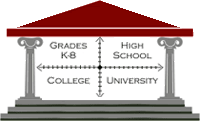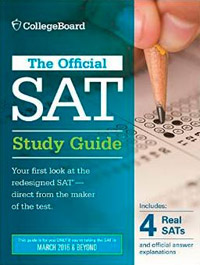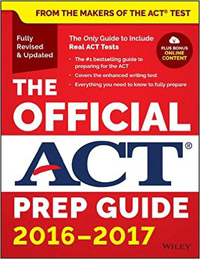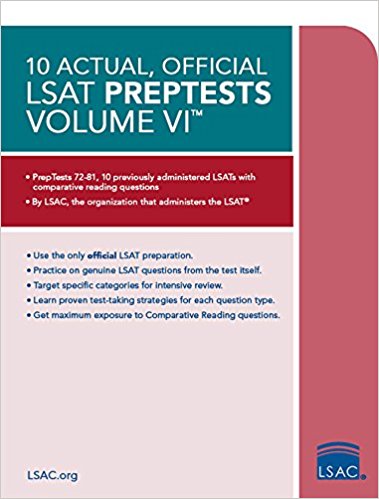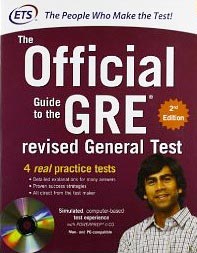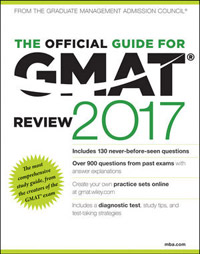|
It's been a long while since I checked in (blame my busy tutoring schedule), so today I'd like to tell a story that illustrates our teaching philosophy at McElroy Tutoring.
Ten years ago, arriving at my destination of San Diego at the tail end of a cross-country drive (yes, it's been ten years already, Brian), I had zero students and a halfway decent amount of cash saved up in the bank. Although I had gained many tutoring clients during my time in Rhode Island, here in California I would have to start from scratch. In order to find new students, I would rely on my ability to self-promote, the power of the still-nascent internet, and the tutoring ability that I had honed over the previous 5 years.
But first, some history:
My 4 years tutoring for "Get Ready" at Harvard (1998-2002) were invaluable because they allowed me to transition directly from studying for, taking and ultimately acing the SAT on my first try, to being admitted to Harvard, to teaching the test to inner-city Boston students. I didn't have any time to forget what I had learned...and as a result, as I like to tell my clients, I've been tutoring for the SAT ever since I was 18 (at this point, almost half my life)!
At the time, I was looking for a public-service extracurricular, and I figured that I had built a unique skill that was no longer useful to me, so I might as well share that skill with others who wanted to acquire it. At Get Ready, we designed our own curriculum and tried the best we could with the limited time and number of students that we had. It was my first classroom teaching experience, and it was where I discovered that I had a unique talent for teaching and connecting with students from all backgrounds.
At Princeton Review, where I worked after graduation, I quickly rose through the tutor ranks to become my area's most highly-requested tutor. I also spent some time working in the office and I saw how tutoring worked as a big business. I gained additional skill as an SAT tutor and classroom instructor, but I also saw a business model driven by greed rather than the student's best interest. I saw that the company preferred to sell its own workbooks and imitation practice tests, although the real tests were readily available in stores. That many of their tutors were inexperienced, recent college grads who had excellent scores but no real skill at teaching the test itself, tutors who simply read from a script and didn't adapt the lesson plan to each student's need. That they charged $120/hr and paid their tutors $18/hr.
And I saw an opportunity. Why not start a test-prep company that allows tutors the freedom to teach the way they choose, with the best materials available? And that pays them 80-90% of the tutoring cost instead of 10-20%, thus attracting the best and most successful tutors?
After three months in San Diego, and a bout of understandable panic regarding my dwindling savings, I finally found my first client: two brothers in La Jolla--one a student at Francis Parker and the other at La Jolla High. Before long I was tutoring them five days a week, and I started getting positive reviews and referrals. Within 2 years my schedule was completely full. Serendipitously, a good friend from Harvard arrived in San Diego and offered to take over my tutoring overflow. Suddenly, we were a real business. Not long after, we added our 3rd tutor, our 10th tutor, an office manager to take phone calls, and years later, our 50th and even 100th tutor, with expert tutors in 25 cities nationwide.
Ten years later, McElroy Tutoring has hundreds of clients worldwide, and arranges thousands of tutoring sessions each year. Personally, I have continued to tutor full-time and have now amassed well over 10,000 hours of tutoring experience.
Like most young, confident college grads, I thought I knew it all by the time I had been teaching the SAT for just one year. Well, I can tell you now that I was categorically wrong. In retrospect, there were plenty of skills that I needed to improve. (Looking back at one's former self is actually quite similar to reviewing a question to which one already knows the answer!) Take the Big Blue Book full of Official SATs: I knew what all the answers *were*, and I knew how to find the answer myself, but I didn't know how to explain the question from every possible angle, for every possible type of student. That type of insight is something that only thousands of hours of tutoring can provide. I could explain why the right answer was right, but that's easy, because everything is obvious once you know the answer.
Say it again: everything is obvious when you know the answer. This is the title of a great book by Duncan J. Watts that I recently discovered. But it is also the perfect description of our test-prep philosophy, and the reason why I was drawn to the book in the first place.
For my first few years as a tutor, I had what I called the "teachers manual": the Official SAT Study Guide with all the answers circled, and my own notes. It gave me a crutch that I could rely upon so that I would never look bad by not knowing the answer to a question or the meaning of a vocabulary word.
However, I eventually realized that this crutch was making me a worse teacher. Because I already knew the answer, I was not seeing the question in the same way my students did. Like the tutors at Princeton who simply stuck to the script, I was working backwards from what I already knew to be true. I was not giving the other answers a fair shake, because I knew they were wrong. After all, these tests are just as much about why the wrong answers are wrong as they are about why the right answers are right.
So I threw away the "teachers manual" and I bought myself a brand-new copy of the book, in which I wrote...nothing. No answers, no hints, nada. Now, whenever I'm tutoring, I'm looking at the same blank tests that my students are. And I'm a better tutor as a result.
For the same reason, I tell all of my students to never look at the answers until they try the questions over again (and to never write down the answers next to the questions). After all, the answer always make sense when it's staring you in the face! But if you know the answer, then the question has essentially lost its usefulness. Only once you've forgotten the answer (and how to get there) does the question become useful again, because on the real test, you're not going to know the answers in advance either.
This is the same reason why you want to cover up the definition of a vocabulary word when studying vocab: if you're looking at the definition of a word, then how are you going to know whether you really knew it before you looked at it? Of course you know it *right now*--you're looking right at it, so how can you not? But it's too easy to fool yourself into thinking that you already knew that definition when you really didn't.
Sure, every now and then I make a mistake or get a question wrong because I no longer have all the answers written down in front of me. But these are not perfect tests, and I am not a perfect teacher. I'm confident enough to admit my flaws and my mistakes, and I learn from them, as do my students. And in many cases, there is no objectively *right* answer anyway. There is simply the *best* answer for that particular test. Test-prep is not just about intelligence; it is about learning the nuances and tendencies of the test, what the test is looking for rather than what you might personally consider to be correct.
At my age and level of experience, I'm no longer afraid to look bad in order to be a better teacher. In tests and in life, sometimes you learn more from that which you got wrong than from that which you got right. Plus, my students always have a hearty chuckle when I screw up or choose the wrong answer...I think it makes them feel better for being human too. One of my favorite things to say to my students about super-hard and/or flawed questions is "I probably would have gotten this one wrong too." Instead of pretending that the solution to every question is easy, I admit when something is harder than usual, illogical or out of the ordinary, which gives my extra information about the tendencies of the test and allows them to prioritize their understanding of different question types. In the end, they learn much more this way than if I had simply given them a neatly canned explanation of the correct answer.
In fact, this philosophy translates perfectly to life. We might give ourselves a hard time about the way things worked out, but that's because we didn't know at the time what the result would be. Of course you would not have taken that new job if you knew the company would go bankrupt 2 months later. Of course you would not have stepped onto the sidewalk if you know that you would slip and fall on the ice. Of course you would not have married someone whom you knew you were destined to divorce. Hindsight is 20/20, as they say.
We must avoid the temptation to assume that every answer can be explained through logic. On the SAT, there are answers that are logically correct, and then there are answers that are "SAT correct"--questionable in real life but appropriate answers for this type of test, a test written by flawed human beings with an agenda, people just like us. In the same way that test-prep students must learn the tendencies of the test, a mother must learn the tendencies of childhood, a business owner must learn the tendencies of the marketplace, and musician must learn the tendencies of his fellow bandmates. Simply put, a human being must learn and study the tendencies of life...even when the answers don't make logical sense.
Here's to ten more years of business and beyond. And to our students, current, former and future: keep covering up those answers and keeping yourself honest.
-Brian
Back to Blog Home
|

